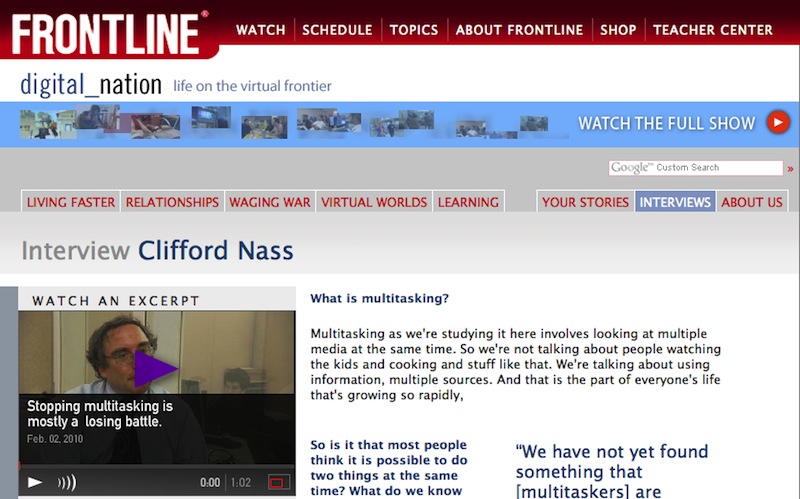Body (part 3/3): Students Internalizing Crisis Rhetoric
<< When Bauerlein argues that literacy skills have declined, his claim is connected to the argument Jones, the MIT professor referenced previously, made about students’ overall habits of engagement. These claims suppose that literacy practices from outside school have a strong effect on school performance. Within this model, literacy decline is not as simple as the idea that contemporary students no longer can produce Standard English. Instead, the argument goes, students are paying more attention to their multiple technologies than to any other mode of communication. This change in operation directly affects students’ ability to engage in schooled literate activity, but also leads to what N. Katherine Hayles in her recent scholarship has referred to as a dominant “cognitive mode of engagement” or hyperattention that determines how people think and process information. In turn, this preferred cognitive mode—one of continually needing stimulation—affects students’ performance in schooled literacy tasks. Within Digital Nation this line of reasoning finds evidence in students’ own testimony that they have a hard time developing connections between paragraphs or in producing more than short chunks of text during one sitting. It is reinforced when Clifford Nass, a prominent researcher of multitasking, suggests that students think of units of writing as "paragraphs" rather than as essays (see transcript selection 3).
How Should We Interpret This Discourse?
There is much for contemporary literacy scholars to contest in the evidence presented for claims about declining literacy. From the idea that first drafts lacking transitions represent a widespread literacy scare to the idea that professors’ memories of writing over the decades represent a valid or reliable measure of decline, there is plenty of room for debate. Indeed, literacy educators might draw on Trimbur’s essay as evidence for why a decline model of literacy is problematic or why a "chunked" model of writing is not inherently less valuable than an essayistic model. To be fair, within Digital Nation, scholars like Gee and Jenkins continually advocate more situated conceptions of literacy, asking viewers to look past a deficit model and toward how practices emerge within the constraints of shifting technological and cultural resources. While scholars in Digital Nation advance both “decline” and “progressive” models of literacy, I, like Trimbur, think that we might gain something by thinking about the contemporary discourse that creates this crisis outside of the framework of either decline or progression. What exactly is being negotiated in this construction of our students as distracted? What anxieties lie under the surface of our complaints about the distracted digital native? >>
